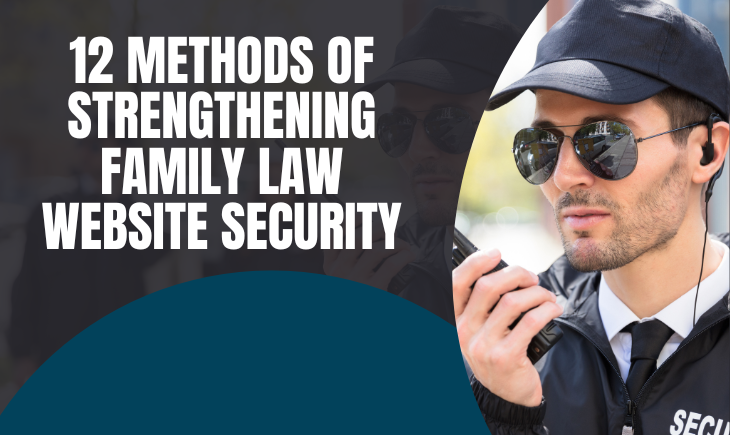In the digital age, law firms are prime targets for cybercriminals due to the sensitive information they handle. Enhancing your family law website security can mitigate the risk of cyberattacks. Here’s how to do it:
1. Use Secure Hosting
Choosing a reputable and secure hosting provider is a vital first step. They should provide robust security measures like firewalls, intrusion detection, and DDoS protection. Ensure they perform regular backups and have a reliable recovery plan in place.
2. Update Regularly
Keep your website platform, plugins, and other third-party software updated. These updates often have patches for security vulnerabilities included, so you leave your site open to known exploits by failing to update.
3. Use SSL Encryption
Implement SSL (Secure Socket Layer) encryption to secure data transmission between your site and users. This encryption is a must for any site that collects sensitive information. An SSL certificate also improves your website’s credibility and can positively affect your search engine ranking.
4. Employ Strong Password Policies
Enforce strong password policies for all users. Passwords should be complex, including a combination of both uppercase and lowercase letters, numericals, and special characters. Regularly changing passwords adds an extra layer of security.
5. Two-Factor Authentication (2FA)
Enable 2FA for all logins. This security measure implores users to verify their identity in two ways – usually a password and a second verification like a mobile notification or fingerprint.
6. Implement a Firewall
A web application firewall (WAF) can identify and block many common attacks before they reach your site. Consider both network-level and application-level firewalls for maximum security.
7. Regular Security Audits and Penetration Testing
Hire cybersecurity professionals to perform regular security audits and penetration tests. They can identify vulnerabilities and provide recommendations for improving security.
8. Limit User Access
Only give users access to the information they need to perform their tasks. This principle, the Principle of Least Privilege (PoLP), can minimize damage if a user’s account is compromised.
9. Educate Your Team
The human factor is often the weakest link in cybersecurity. Regularly educate your team about best practices, like identifying phishing attempts and using secure Wi-Fi networks. This education can drastically reduce the risk of a security breach.
10. Backup Regularly
Regular backups are critical. If your site gets compromised, having a recent backup means restoring it without losing all your data. Store backups in a separate, secure location and test them frequently to ensure they work.
11. Use Secure Forms
If your website uses forms to collect sensitive client information, ensure they are secure. Form submissions should be encrypted, and data should be stored securely.
12. Incident Response Plan
Despite best efforts, breaches can happen. Have an incident response plan to mitigate damage, secure your systems, and maintain client trust in the event of a security incident.
Conclusion
In conclusion, making your family law website have excellent security is a multifaceted approach involving technological and human elements. Regularly updating and testing your site’s security, combined with education for your team, can help keep your site safe from cyberattacks. It will do you no good if your own law website cannot protect itself from those determined to break the law!


